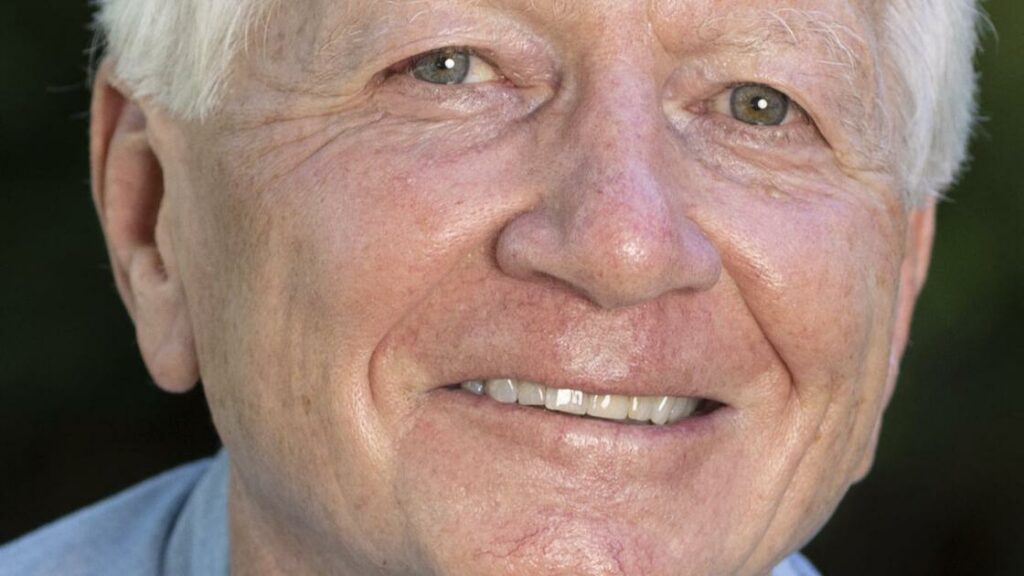The following is the opinion and analysis of the writer:
Richard Gilman
A fix may be is on the way for part of the election system that helps extremists of the ultra-right and ultra-left land in Washington.
Take Arizona for example. We get well-deserved recognition these days as a swing state, with the voter rolls showing as many unaffiliated voters as there are Republicans and far more than Democrats. The state went for Trump in 2016 and Biden in 2020.
By contrast, our representation in the U.S. House of Representatives won’t be mistaken for middle-of-the-road. In fact, our nine-member delegation is among the most extreme in the country.
Four of the six Republicans in the delegation belong to the ultra-conservative House Freedom Caucus, which is saying something when one considers that the group only has 39 members. Arizona matches the four from Florida and Tennessee and exceeds the three from much bigger Texas.
People are also reading…
With the caucus’s most ardent obstructionists, including some of the Arizonans, once again jamming up discussions on the federal budget, it’s fair to say that these individuals don’t make it their first priority to work collaboratively with the rest of the House.
But what is one to expect when two of the four ran unopposed in the last general election? Their districts provide them unassailable registration advantages, with roughly twice as many Republicans as Democrats.
This is not entirely a one-way street. The pattern is repeated on the other side of the aisle. Two of the three Democrats in the delegation belong to the most liberal group in the House, the Congressional Progressive Caucus. They’re able to do so with impunity because they also enjoy huge registration margins back home. One of the two represents a district with three times as many Democrats as Republicans.
That’s Arizona. High percentages of Republicans live in rural counties and certain portions of the Phoenix metropolitan area. Then the Independent Redistricting Commission comes along, and in the course of “fulfilling” its cautious interpretation of certain requirements, tilts the table even more.
Even with all this, however, the extremism would take a hard hit if the state’s plentiful independent voters had an easier time of participating in primary elections. It is one of the great paradoxes of modern politics that as independent voters become ever more prevalent, they have little say in choosing the candidates they will vote on in November. Even in Arizona’s semi-closed system, the primaries are almost exclusively the domain of Republicans and Democrats.
But that could change in a major way this fall. Arizona is one of seven states that will vote on reforming how elections are conducted.
Initiatives in four of those states — Colorado, Idaho, Nevada and Oregon — seek a combination of open primaries and ranked-choice voting. The remaining three states — Arizona, Montana and South Dakota — are content just to seek open primaries.
Arizona is going at it in roundabout fashion. For starters, we have two conflicting initiatives on the ballot. The one enacts open primaries. The other keeps the status quo. If both initiatives somehow pass, the measure with the higher vote total will prevail.
If that confusion isn’t enough, the open-primaries measure doesn’t specify whether, like Montana, the top four candidates make it to the general election or, like South Dakota, just the top two candidates move on. We will leave it to the Legislature to decide. What a fine mess that will be. To top it off, depending on what the Legislature decides, the state could back into the substantial change of employing ranked-choice voting in the general election.
Even with these zig-zags, it still is worth the trouble. Bringing to bear the moderating voice of all those independents will have considerable impact on congressional primaries across the board. Their influence surely will be felt in the two or three districts that could flip to either party.
And even in the six districts with lopsided registration advantages, the single primary ballot and the size of the independent bloc will encourage moderate candidates to throw their hats in the ring. We have to hope that just the prospect of such will cause the incumbents to think twice before going to the extreme.
Follow these steps to easily submit a letter to the editor or guest opinion to the Arizona Daily Star.
Arizona Daily Star
Richard Gilman’s career as a newspaperman took him from the Star to The New York Times to the Boston Globe. Visit his website at ourcommonpurpose.com.
Catch the latest in Opinion
Get opinion pieces, letters and editorials sent directly to your inbox weekly!
Source link : http://www.bing.com/news/apiclick.aspx?ref=FexRss&aid=&tid=66f960a68f3d4ce9b181d4a1ce8a1172&url=https%3A%2F%2Ftucson.com%2Fopinion%2Fcolumn%2Flocal-opinion-arizonas-independents-may-get-a-voice-in-primaries%2Farticle_b617f2a6-7ac8-11ef-a85f-2f318e9f7722.html&c=12044856747160388337&mkt=en-us
Author :
Publish date : 2024-09-29 03:01:00
Copyright for syndicated content belongs to the linked Source.
